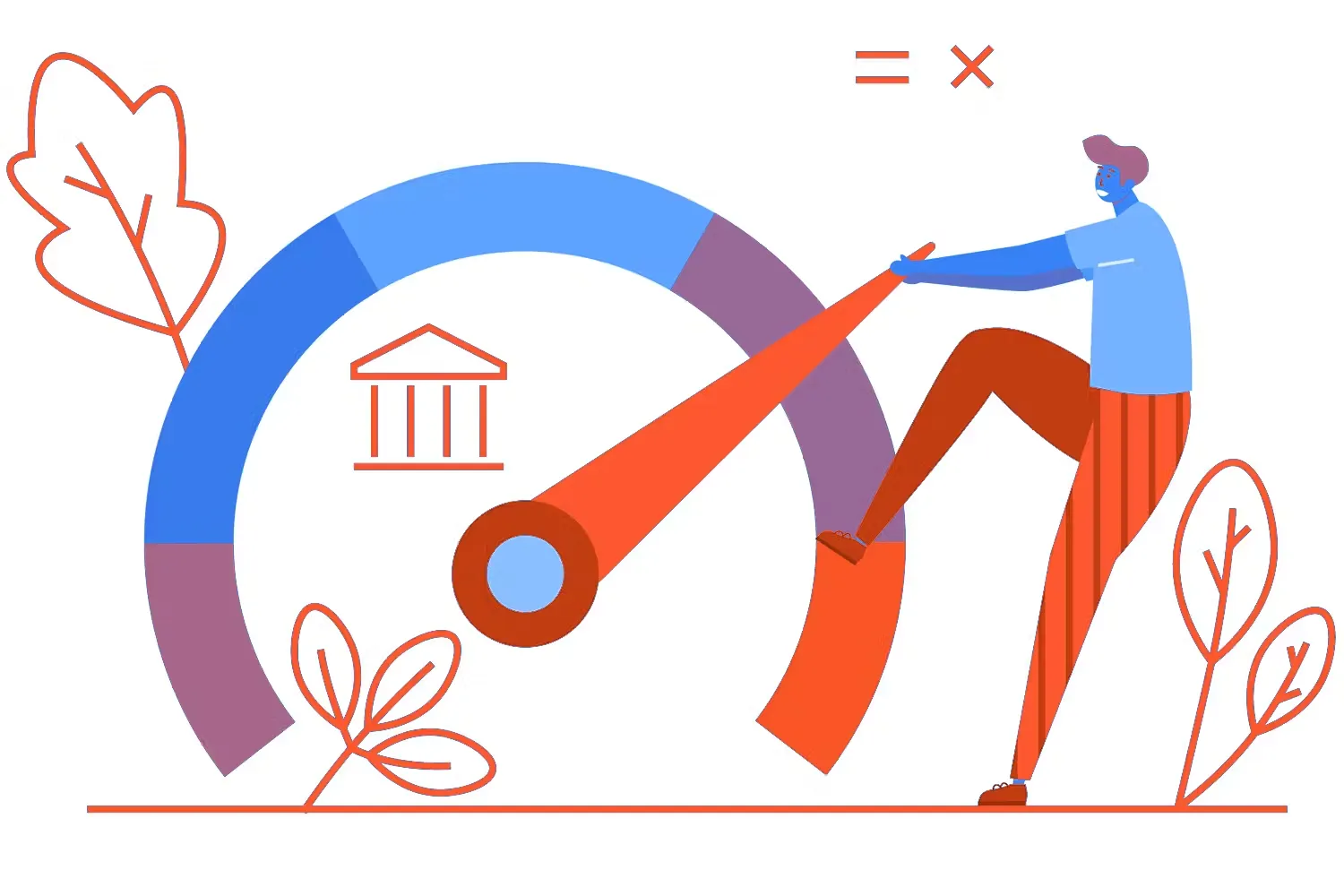
What Your Credit Score Means for Your Loan

If you’re planning on purchasing a home soon, you are probably thinking about your credit score and how it will affect your interest rate or your chances of qualifying.
Though your credit history, income, and total debt is ultimately what matters the most, it’s still important to understand the role your credit score plays in lenders’ decisions. Here’s what you need to know about your mortgage credit score.
Why Your Credit Score Matters for Mortgages
When you apply for a loan, your lender works to determine one important thing: Will you, the borrower, be able to repay the money that they lend you?
You might have heard the term “mortgage underwriting” before. This is the process that a lender uses to determine a borrower’s risk. Many factors come into play during underwriting— your income, debt, and your credit history.
Your credit score is a simplified snapshot of your overall creditworthiness. It’s calculated using various algorithms that all take the same general information into consideration:
- Payment history
- Amount owed on credit accounts (loans, credit cards, lines of credit)
- Length of credit history
- New credit
- Credit mix (installment loans vs. revolving credit)
Your credit history does more than determine approval, it also influences your loan terms. Those with good or excellent credit scores most likely have excellent histories, which may open them up to better rates—saving those borrowers thousands of dollars over the life of the loan.
From Mortgages to Home Equity Loans
Our local, award-winning lending team is ready to help you begin today.
Credit Score vs. Credit History
This may surprise some, but your credit score is only one piece of the puzzle when it comes to loan underwriting. Along with employment history and debt to income ratio, your credit history will be a crucial deciding factor.
Credit scores take into consideration several factors that might put a borrower at a disadvantage. For example, a borrower who has never had a credit card may be docked points for not having a good “credit mix” of revolving credit and installment loans— even if they’ve paid every monthly payment on time for an auto loan, home mortgage, and student loan. But because they lack a credit card, their credit score is lower than someone whose profile looks almost the same.
Similarly, a younger borrower may have a lower score simply because the length of their credit history is short. They may have impeccable finances and a solid income, but because they haven’t had time to build their score, they may appear to be a riskier borrower.
If you’re a borrower who has good credit history but a less-than-perfect credit score, always be sure to talk to your lender. A loan officer, especially one at a smaller bank or local credit union, can work with borrowers who may not otherwise qualify.
What’s a good credit score for a mortgage?
What’s considered a “good” credit score depends on the model that your lender is using. The most common model for mortgages lenders is FICO, who categorizes scores like this:
- Poor: 300-579
- Fair: 580-669
- Good: 670-739
- Very good: 740-799
- Exceptional: 800-850
However, there’s no one-size-fits-all credit score that you need to hit for mortgage approval. Much of it will depend on your lender and the loan product that you are applying for. For example, you can get approved for some government-backed loans, such as the FHA loan, with a score of only 580. Some conventional loans, on the other hand, may have a minimum requirement as high as 640. Jumbo mortgages may have even higher thresholds— oftentimes between 680 and 700.
But, again, don’t automatically count yourself out if you don’t have a credit score that meets these requirements. There are dozens of reasons why your credit score may not reflect your true creditworthiness. It’s always worth speaking to a lender, explaining your situation, and getting their opinion on the situation.
Thing to Keep in Mind When Checking Your Credit Score Online
It’s easier than ever before to track your credit score. When looking at your score online, here are a few tips to remember.
Not all credit scores are the same. Each credit bureau has different formulas for how they compute your credit score. Even within a single bureau, there are algorithms for specific types of loans, like car loans and mortgages, and each of these models have different versions. The score that you see— even if everything is correct—is not going to be the same when a different formula is used.
Online services like Credit Karma aren’t always correct. While getting your score from an online service can be a great place to start, they may not always be accurate. Depending on what kind of loan you’re looking for, the credit score shown online might be way off from the actual score a lender would pull.
Lastly, credit scores can change. Your credit is constantly changing. Actions as simple as making a few loan payments, applying for a retail card, or paying one bill late can cause shifts.
Get Your Credit Score Ready for a Mortgage
Your credit score is a reflection of your overall credit history and health. If your credit score isn’t where you want it to be before you apply for a loan, don’t panic. There are things that you can do to raise your credit score.
First, see what is doing the most damage to your score. Many online services break each factor down. Is your revolving utilization too high? Have you placed too many inquiries in the past few months? Do you have a good credit mix? Understanding exactly what has caused a hit to your credit score allows you to better concentrate your efforts and prevents you from making similar mistakes again.
If you aren’t able to pinpoint the exact issue, there are two things that you can do that will help your score:
- Pay down any debt that you have: This will lower your credit utilization ratio, which is a big factor in your overall score. It can also decrease your debt-to-income ratio, which isn’t a credit score factor but is taken into consideration when you apply for a mortgage.
- Pay all of your bills on time: Payment history is one of the most important factors when it comes to your credit score. By paying your bills consistently on time, you can slowly build up your score.
These two things alone have the power to boost your score and improve your overall financial standing.
Know Your Credit Score’s Role
Your credit score may not be the most important factor when it comes to taking out a loan, but it’s not something to forget about. It’s still important to consider, as those with good credit scores may be offered more favorable mortgage rates. If you have a poor or fair credit score, work to raise it by paying off debt and paying all of your bills on time.
Ready to get prequalified?
Apply today and start your journey toward your new home.


